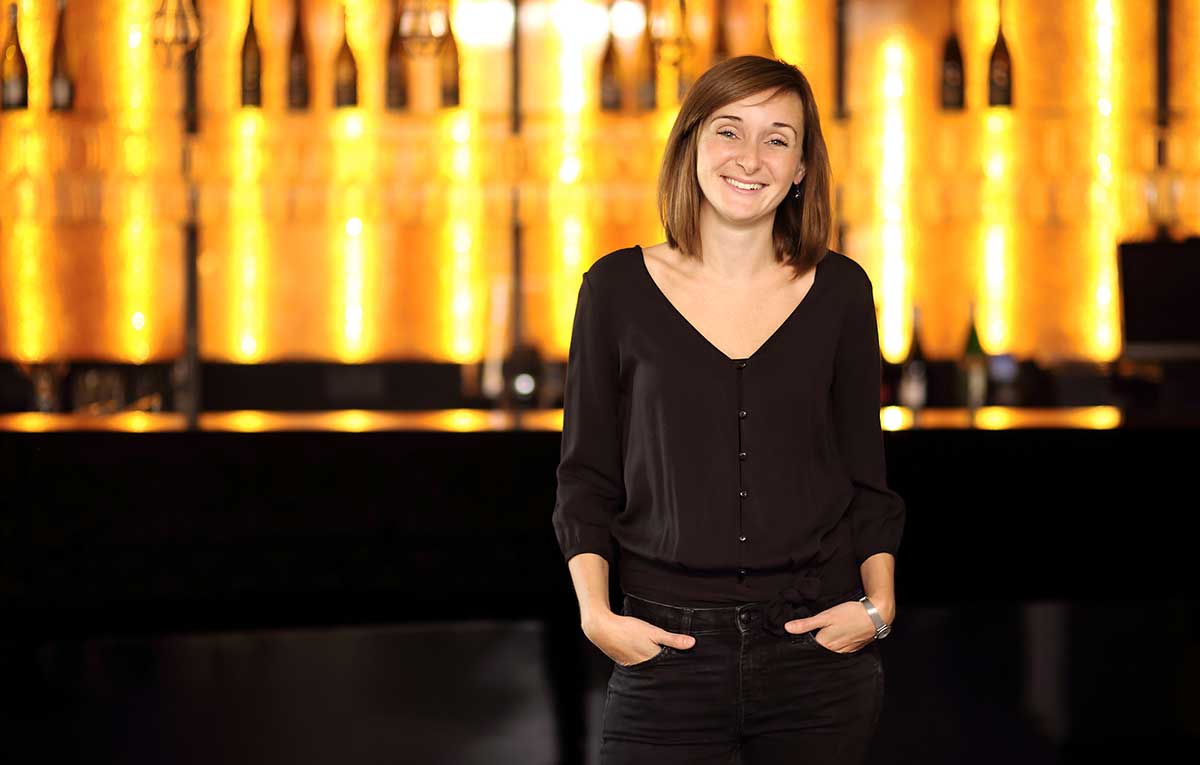
Germany is home to a number of vineyards that offer the best conditions for vitis vinifera, and boasts a long tradition of grape cultivation for the production of first-class wines. Many wineries have been family-owned for decades, if not centuries. The name, reputation, experience, expertise, and knowledge of the peculiarities of each individual vineyard are passed down from generation to generation. Wine production is more of an art than a science. So who in their right mind would get the idea to buy, overhaul, and run a vineyard without any prior knowledge?
The Bremer family from the German town of Calw, that’s who. They started winning awards for their wines just a few years into production with their Vineyard Bremer. A lot of people—ourselves included—thought it was crazy; they said it couldn’t be done. That’s why we were so eager to talk to them. We met up with the youngest of the three sisters, Leah Bremer, for an interview on how a family managed to do the impossible, and what practical tips she would give wine connoisseurs.
Three sisters, all complete outsiders to the wine industry, open a winery. How did this come to be?
Well, the three of us were actually off doing completely different things. But to tell the story, I have to go back a bit earlier: my parents have a real-estate company that my oldest sister was working at. Our middle sister, Rebecca, trained and worked as a chef and pâtissier in Paris. I—like any good Swabian—was working in online communication at a Swabian car company. Then my parents came out of nowhere with this family winery project and asked if we were interested, which we were. I was tired of working for a major corporation and Rebecca wanted to come back to Germany. We always enjoyed good wine, and my father’s wine cellar was always well-stocked.
A lot of people like to drink wine, but not all of them get the idea to start a winery. What was the pivotal point?
It was obviously a bold move, and a lot of people thought we were crazy. Five years ago, none of us knew how wine was actually bottled. My mother happens to love property that’s somewhat older and special, then an agent showed her this winery in the Palatinate region, and it was love at first sight—for us sisters, too. It’s a big and lovely estate. Before we took over, the winery had been in another family’s hands for over 100 years. It had so much charm, character, and history. It’s just a magnificent place.
So we started renovating step by step, beginning with the residence and the cellar, which we fitted with new equipment. Then we moved on to the wine store. We even have a big barn for events and celebrations.
There were two common responses when we told people about the winery project. People who had no idea about wine production would tell us how cool they thought it was.
But vintners and others in the industry would say things like, “Wow, that’s bold!” Everybody who knew what an endeavor like this entails and what one can expect said we were crazy for getting into the game so late in life. And to some extent, we probably are a bit crazy! [laughs]
I would say the beginning is particularly difficult when starting a winery like this. There are over 20,000 wineries in Germany and nobody is waiting for one more. It also took a while until everyone found their place in the winery—who would be responsible for what.
The entire vineyard has been renovated: the wine bar before and after.
I think so, yes. We all enjoy having the autonomy to create something ourselves. As I said, I worked at a major corporation before this and found the hierarchy cumbersome. Anything you tried to do would be chipped away at, and by the time the suits at the top signed off on it, it no longer resembled what you first imagined. I didn’t care for that. That’s why the notion of being my own boss and bringing my own ideas to life was so appealing, and I think the others would agree. So yes, I would say that we had this entrepreneurial gene in us from the beginning because we saw it in our parents.
What do you remember of your childhood?
Our parents were quite busy, but their office was at home. That was quite nice because they were always around if we needed them. We also listened in on a lot of conversations and learned about all sorts of things. A lot is talked about at the dinner table, for example, when your parents have their own business. We learned a lot that way without ever really noticing.
Your winery is currently in its fifth year, and you’ve started winning your first awards. How did you manage that?
Winning these awards was a major success, especially for such a new winery like ours. The German Red Wine Award is quite renowned here in Germany. We were happy to take first place with our Portugieser, and we are equally proud to have been named “Newcomer of the Year” at the Riesling Champion.
It takes a long time to get to know your own vineyards. Each vineyard is different: the soil, the grapes, the vintage, how much the sun shines, how much it rains. There’s a lot to learn! You also have to know how to handle your grapes in a way that yields the best results.
That sounds complex.
It is. At first I thought: we’ll just make wine, it can’t be much different than making a sauce. [laughs] But no, it’s an art form. The enologist we hired, Michael Acker, has been doing it forever. His grandfather was a vintner. So far, every year has been completely different. Every year, I thought: so, we’ve done everything once. But every year something new happens. Sometimes it hails, sometimes it’s super dry, other times it rains too much. Working with nature can be real tricky. Whatever the weather does, we’re completely at its mercy. You have to get used to that. I don’t think any of us had really thought about that early on.
We also had no idea how much work went into a bottle of wine. We just thought: okay, there’s the vine, and it has to be trimmed every year, then the grapes will grow and we will harvest them. But we never imagined just how many steps there are, how much you have to get your hands dirty if you want to meet the high quality standards.
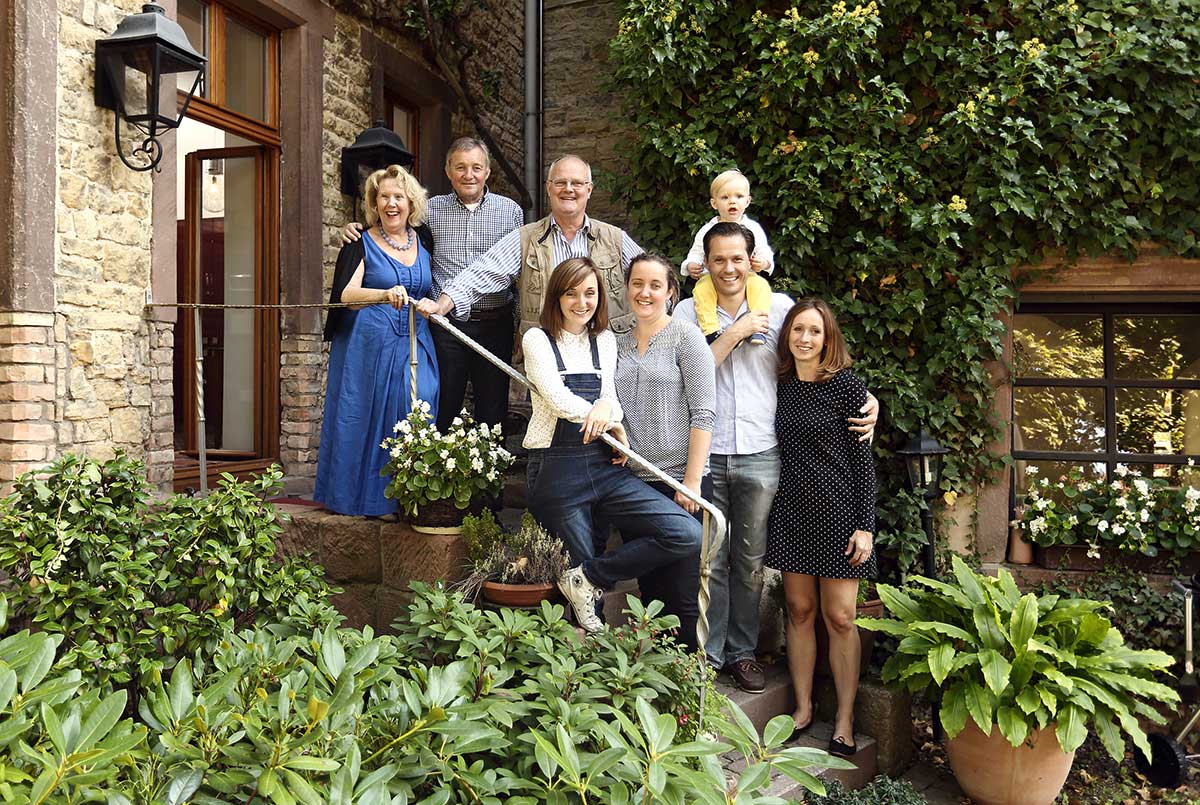
The Bremer family and enologist Michael Acker on the Vineyard Bremer.
Are you normally so ambitious?
Of course, we want to keep getting better. We want to improve our quality every year and earn better and better ratings in the wine guides. One of our goals is to someday be one of the best wineries in Germany.
When we took over the winery, we were starting completely from scratch. We didn’t inherit any of the wines, any of the customers, and not even the name because none of that really fit our philosophy. We harvest everything by hand and greatly reduced the yield. But we’re trying to grow successively each year.
Are your parents still involved in the winery?
My father is the official managing director, and I would also call him our chief finance minister. He keeps an eye on the figures. But other than that, both of our parents have stayed out of the day-to-day business. They are, of course, involved in strategical matters. We consult each other often and we can always come to them with questions. We talk a lot as a family about long-term decisions.
What is your role in the family?
I’d say I’m the bringer of peace. I’m the optimistic, good-mood type, and I’m calm by nature. But I’m always good for a laugh. I try to bring everyone together and soothe nerves when that’s needed.
What is it like working with family?
Sometimes it works really well, other times not so much. Everybody always has something to say. I think that’s the hard part in a family business like ours. But on the other hand, that’s also what makes it unique, and it’s often how new ideas come about. It can be difficult, though. Everyone has an opinion, particularly when it comes to marketing, which is my field. Whether or not it’s a valid opinion is another question. But then you look at my sister Rebecca, who tends to the vineyards, and suddenly everyone is quiet. [laughs]
Your sister has a son, and you’re expecting one. Will your children also inherit the entrepreneurial gene? I think so, to be honest. We will certainly instill in them the drive to bring their ideas to life, and we will support them in doing so. I think that’s a lot different than hiring everyone in the family. You know earlier on about everything involved in starting your own company. The entire process and everything that goes on behind the scenes is already familiar. That way, maybe they won’t be so afraid to go out and make it on their own. I could certainly see that being the case.
Especially for a winery, it would be great if one of the kids develops an interest so we would have a successor. The most famous and successful wineries have been around for 100 or more years. I believe it was Widow Clicquot who once said, “The first 100 years were hard. Then things started picking up!” It takes an incredibly long time for a winery to establish a name for itself, so it would, of course, be nice if the kids—even just one of them—wanted to continue the family business. My nephew already loves going for tractor rides, so the chances are good! [laughs]
What have you learned since running the winery?
I think it’s important not to rush things and to keep an open mind to everything and everyone that comes along. I have a lot of contact with our customers. The great thing about the wine industry is that everyone is super nice. Especially here in our village in the Palatinate. Swabians tend to be rather distanced and reserved. We have a saying there that goes, “You won’t step past my garden gate!” But the people in the Palatinate are much different. They’re open and always willing to lend a hand. In a particularly dry year, we were figuring out how to water our vineyards when our neighbor came over and offered to help. That was so nice of him! This sounds so bad, but as a Swabian you think: Why is he doing that? What is he after? But that’s not how the Palatines think. That was a nice experience. It just goes to show that you never stop learning.
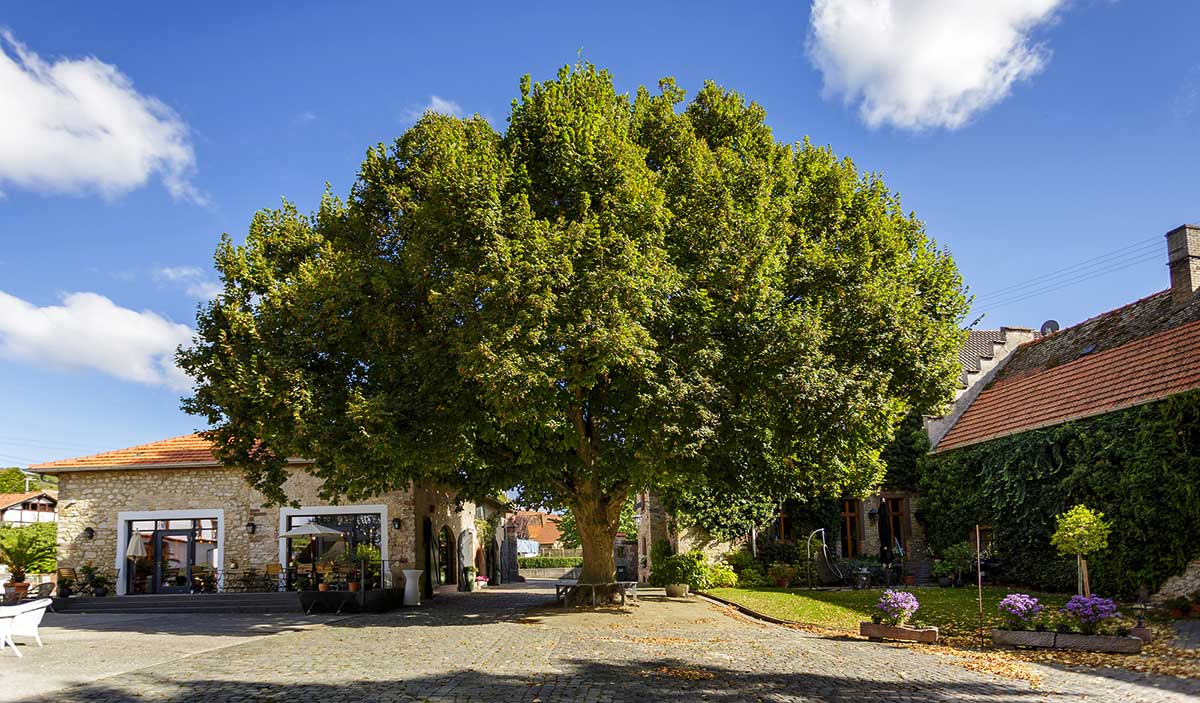
The vineyard Bremer today.
It wasn’t all that long ago that you got started in the wine business. Do you have any tips for normal wine enthusiasts who want to learn more?
I think the first and foremost thing is to not let yourself be intimidated by the topic of wine. A lot of my friends were afraid because it’s such a broad field. People tend to be ashamed if they ask or say the wrong thing, which is nonsense, of course. Take the aroma of wine, for example: there’s no right or wrong here. If you smell or catch a note of something, nobody can tell you you’re wrong. Nobody can say what you smell and the way you perceive a smell. If you smell strawberry and I smell raspberry, then that’s just the way it is. You just have to learn to not be timid.
Also, one thing that really helped at the beginning was attending a sensory seminar. I think that could be worthwhile to anyone interested in getting into wine. You can also take a crash course to learn the basics: How can wines taste? How can they smell?
May favorite description was “wet Tupperware.” Now you have to think to yourself, how does wet Tupperware taste and smell? There are some really far-out descriptions. A lot is compared to leather, especially when it comes to red wines. But would you scent “moist horse saddle” in a wine? Do I want my wine to smell like a moist horse saddle? [laughs]
Lunor gave its customers and partners your Blanc de Noir sparkling wine for Christmas. What can they expect from that?
The idea for that wine was to make it quite dry, zero-dosage [editor’s note: no sugar]. That means nothing else is added to this sparkling wine. Once it finishes fermenting, it’s basically done. And Blanc de Noir means it’s a sparkling white wine made using red grapes—”white from red.” It’s a common misconception that if the grape is red, the wine will be red, too. But often only the skin of the grape is red and the inside is white. Keep that in mind the next time you eat a grape. What gives a red wine its color is the skin, but the grapes are only pressed for the Blanc de Noir. So the base wine is white. Our Blanc de Noir is made from St. Laurent grapes, often considered the little brother of pinot noir.
Your family comes from Calw, not far from Lunor’s company headquarters, and some of them still live there. What does the Black Forest mean to you personally?
Home! The Black Forest is my home. I spent some time in Utah, in the United States. That’s desert country. Before living there, I never realized how important the trees and the Black Forest are to me.

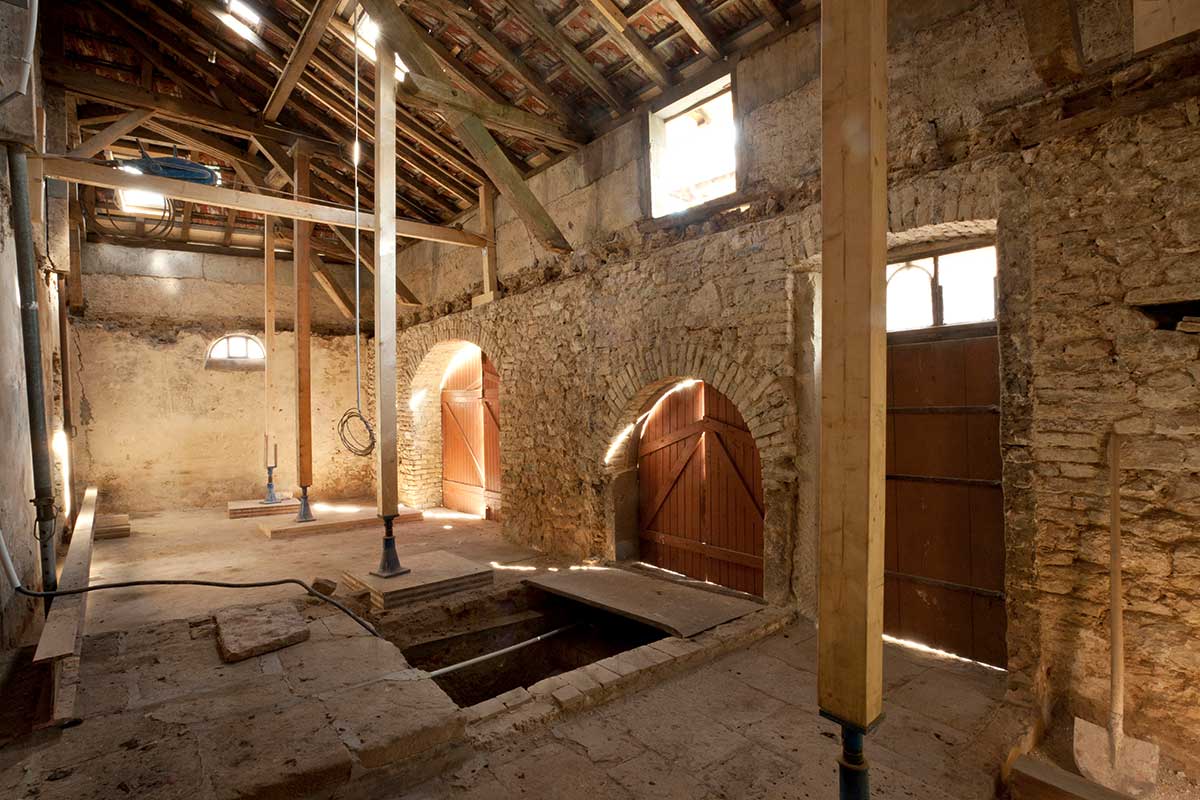
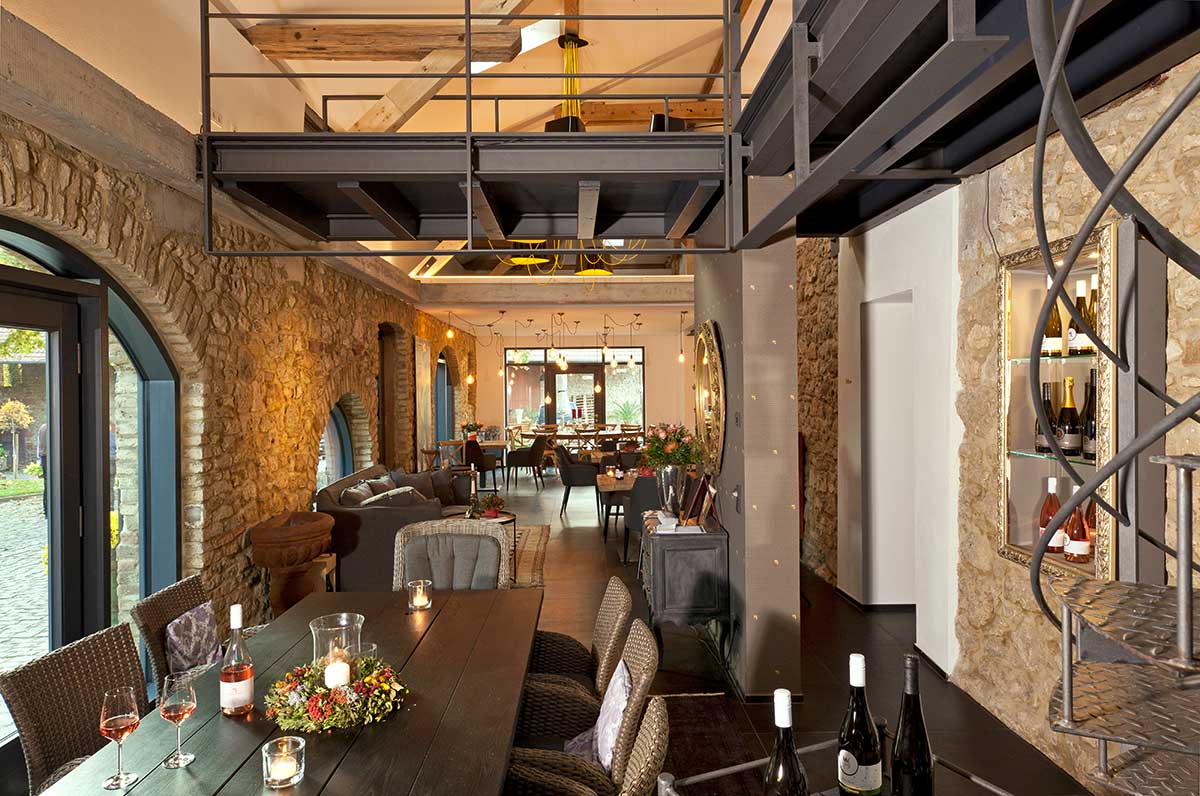
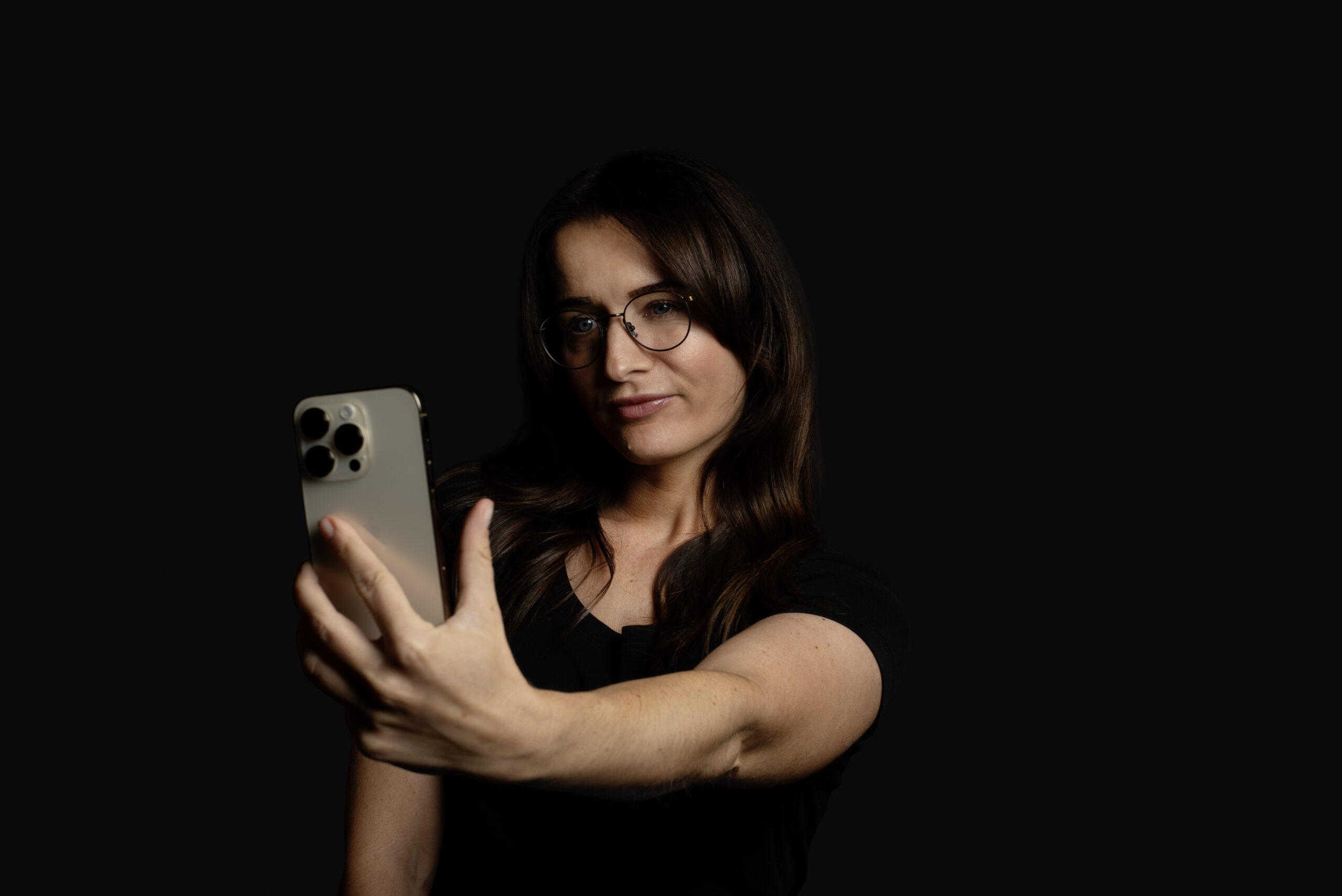
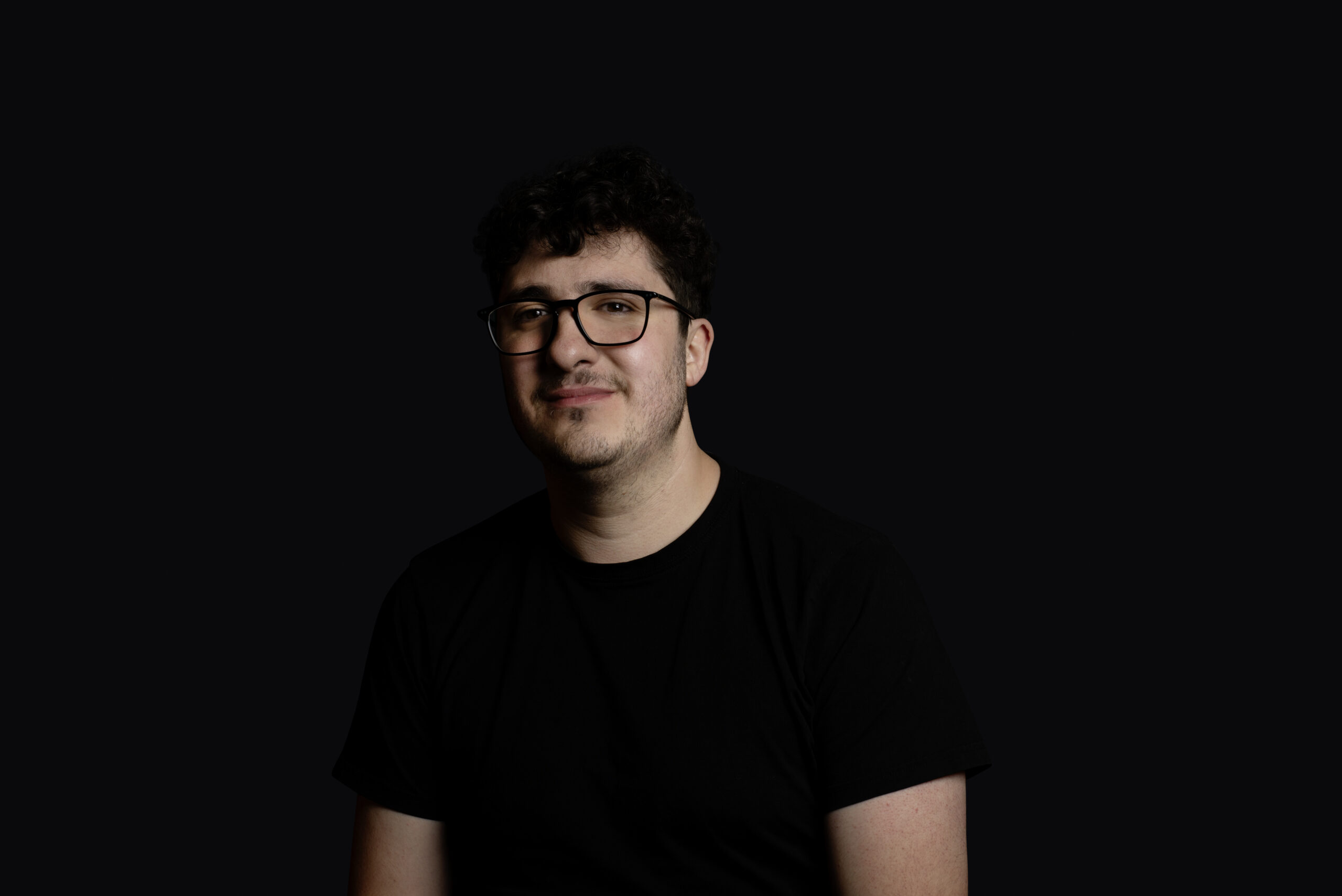
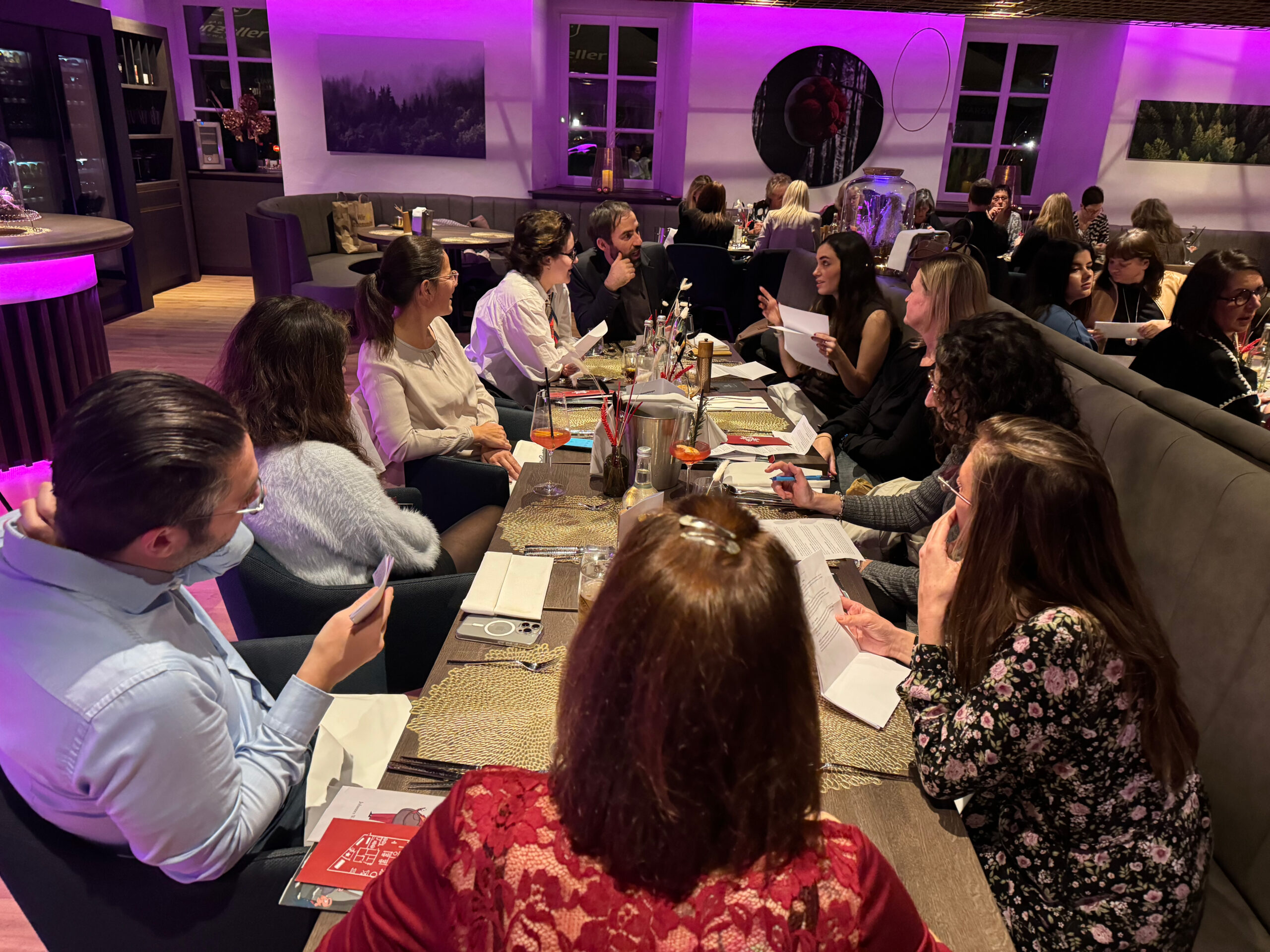
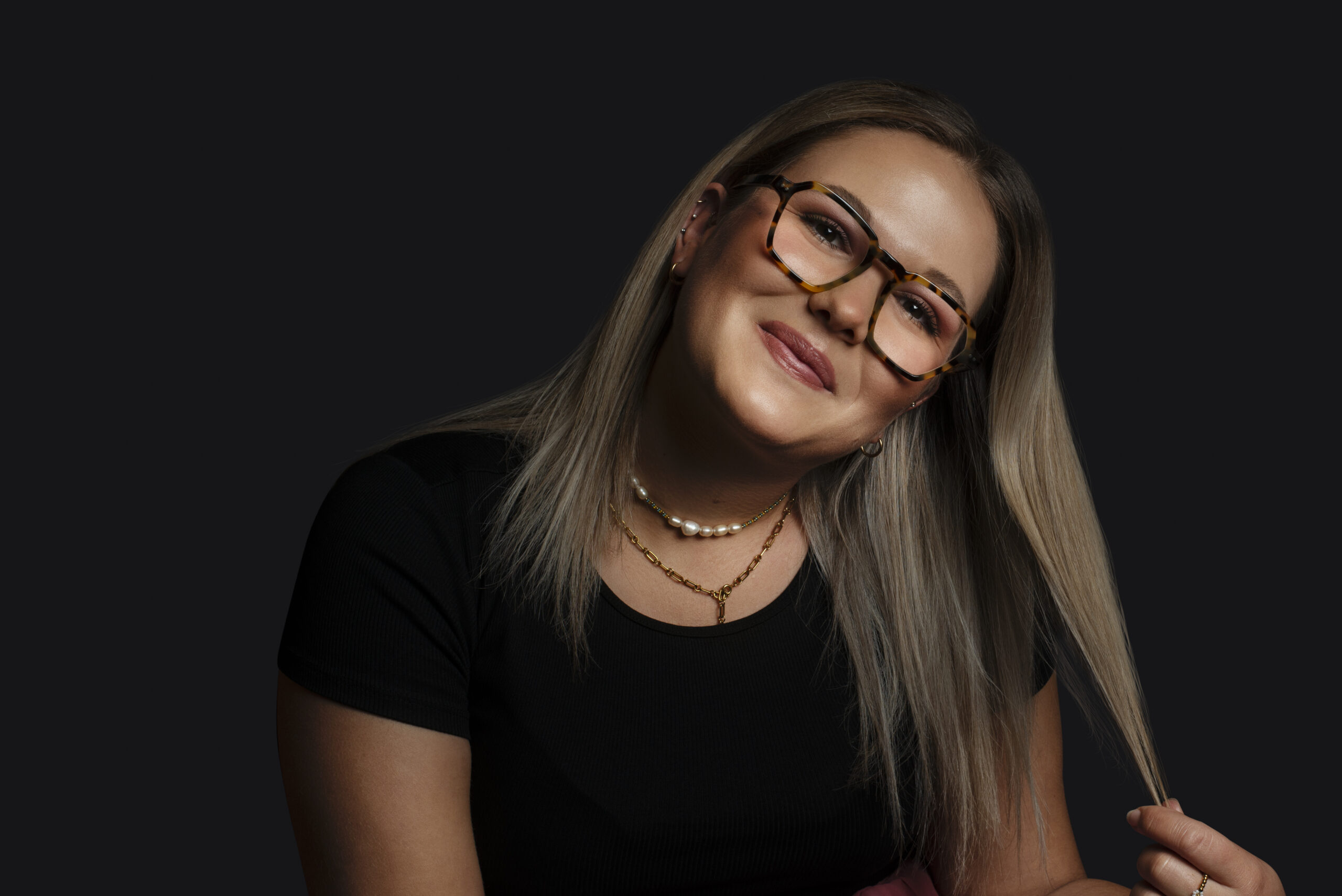
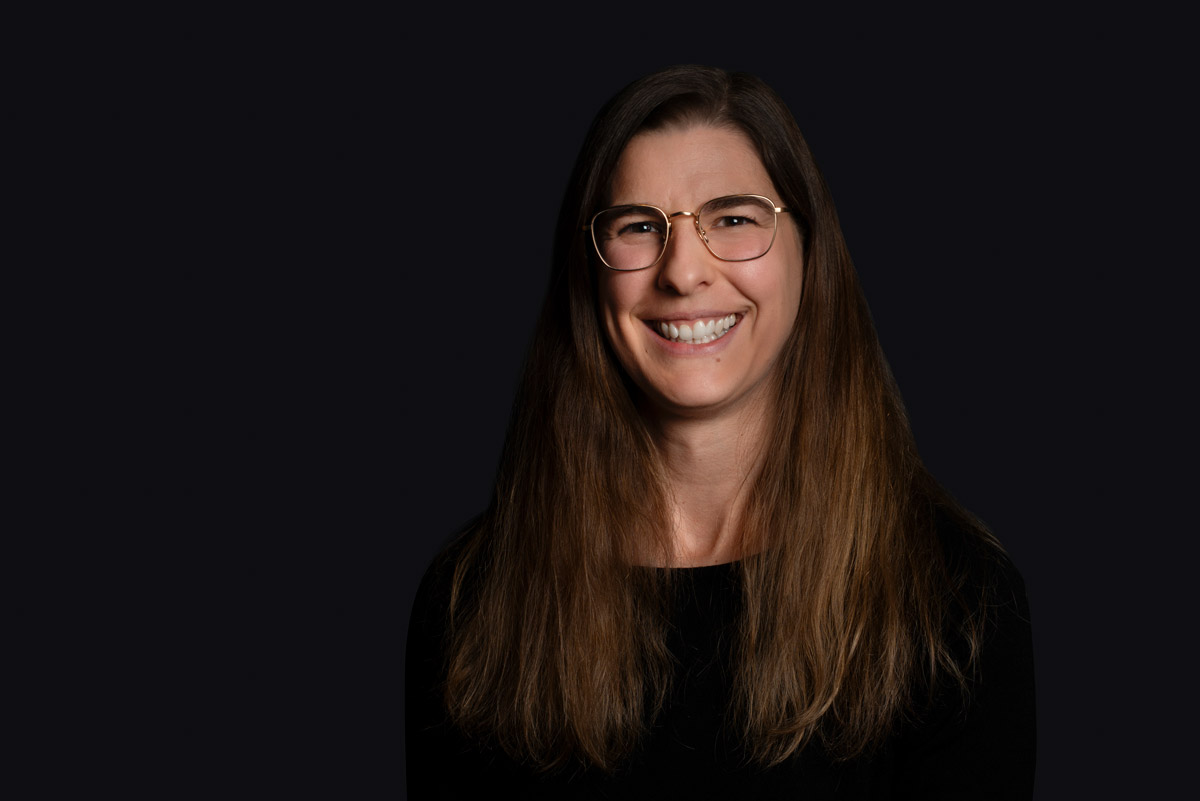
Leave A Comment